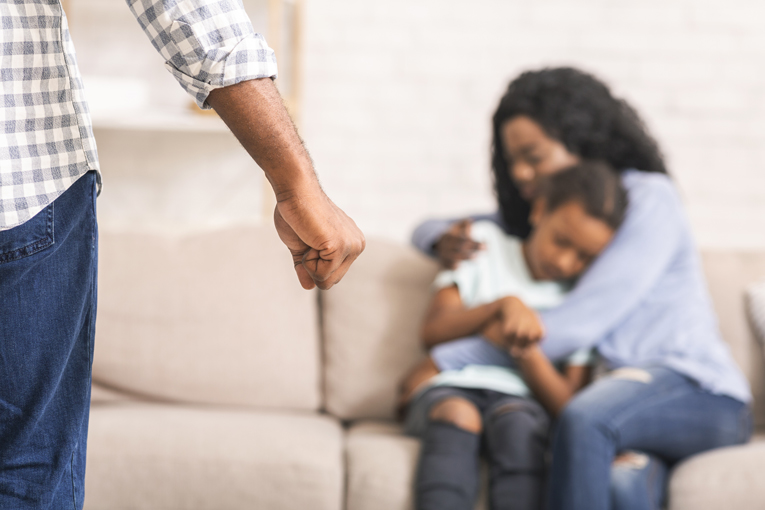Love, commitment, and the desire for a stable family life are powerful motivators that often lead individuals to make difficult choices. One of the most heartbreaking decisions someone may face is whether to stay in an abusive relationship for the sake of their children. This complex and emotionally charged dilemma presents numerous challenges, both for the individual experiencing abuse and for the well-being of the children involved.
Understanding the Dynamics
Abusive relationships are characterized by various forms of control, manipulation, and physical or emotional harm. The decision to stay in such a relationship can stem from a multitude of factors, including fear, financial dependency, cultural or religious beliefs, and a deeply ingrained sense of commitment. In the context of children, parents may believe that maintaining a stable family structure is more beneficial for their offspring, even if it means enduring personal suffering.
Fear and Isolation
Fear often plays a significant role in the decision to stay in an abusive relationship. Victims may fear for their safety or the safety of their children if they attempt to leave. Abusers may use intimidation and threats to maintain control, creating an environment of fear and isolation. The victim may feel trapped, unable to imagine a life outside the abusive relationship without the support of a partner, even if that partner is the source of their distress.
Financial Dependence
Economic factors can further complicate the decision to leave an abusive relationship. Financial dependence on an abusive partner can make it challenging to break free and create a new life for oneself and their children. The fear of facing poverty, homelessness, or the inability to provide for the children may outweigh the perceived benefits of leaving the abuser.
Staying in an abusive relationship for the sake of children is a challenging decision. However, there are several compelling reasons it is generally advised not to stay in an abusive relationship for the well-being of both the parent and the children:
Impact on children’s well-being:
- Witnessing abuse can have severe emotional and psychological consequences for children. It can lead to anxiety, depression, and behavioural issues.
- Children may internalize the abusive behaviour as normal, affecting their future relationships and overall mental health.
Modelling unhealthy relationships:
- Children learn about relationships by observing their parents. Staying in an abusive relationship sets a harmful example, teaching them that abuse is acceptable or normal in intimate relationships.
Risk of perpetuating the cycle of abuse:
- Children raised in abusive environments are at a higher risk of becoming abusers or entering abusive relationships themselves, perpetuating a destructive cycle.
Emotional and physical safety:
- An abusive relationship poses a threat to both the emotional and physical safety of the parent and the children. Escaping such an environment is crucial for everyone’s well-being.
Parental well-being:
- A parent’s mental and emotional health is vital for effective parenting. Staying in an abusive relationship can lead to stress, anxiety, and depression, negatively impacting the parent’s ability to care for and support their children.
If you decide to leave an abusive relationship here’s what you should do:
Seek legal protection
- In many jurisdictions, there are legal measures and support services in place to help individuals escape abusive situations and protect themselves and their children.
Resource accessibility:
- Leaving an abusive relationship may be challenging, but there are often resources and support systems available, such as shelters, counselling services, and legal assistance, to help individuals rebuild their lives.
Positive co-parenting:
- Co-parenting in a healthy and respectful environment, even if separated, can provide children with a more stable and positive upbringing compared to an environment filled with tension, fear, and violence.
Personal growth and independence:
- Leaving an abusive relationship allows individuals to regain control over their lives, fostering personal growth, independence, and the opportunity to create a healthier environment for themselves and their children.
Exploring Alternatives
While leaving an abusive relationship is undoubtedly challenging, exploring alternatives is crucial for the well-being of both the individual and the children involved. Seeking support from friends, family, or professionals can provide a lifeline for those facing abuse. Legal interventions, counselling, and community resources can offer avenues for escape and recovery.
The decision to stay in an abusive relationship for the sake of children is a deeply personal and agonizing choice. While the motivations behind this decision are rooted in love and a desire for stability, it is essential to recognize the potential long-term consequences on both the individual and the children. Seeking support, understanding the available resources, and exploring alternatives can pave the way for a healthier, more secure future for all parties involved. Ultimately, breaking the cycle of abuse is a courageous step toward building a life free from fear and violence.

